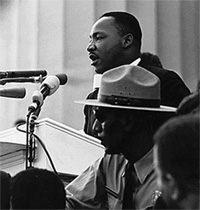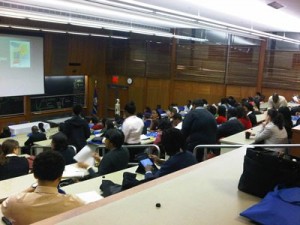The Cobb Institute, founded by the National Medical Association (NMA) is focused on the elimination of disparities in health and healthcare that disproportionately affect African Americans. Disparities in health among, racial and ethnic groups in the US are significant and, by many measures, continue to increase.
The institute is named for William Montague Cobb, who dedicated his life to turning prejudice into pluralism. The first black physical anthropologist to earn a Ph.D. and the only one until the Korean War, Dr. Cobb’s work focused on the consequences of segregation and racism, and he used his work to confront these issues. Dr. Cobb served as president of the National Medical Association from 1964-65. In 1976, he became president of the NAACP, a post he held until 1982.
As a physician-scientist involved in research on health disparities and its affect on health status in this country, I am acutely aware of the need for community education and outreach. Bringing effective health care to the underrepresented populations of this country is my mission inf serving as the Chair of the Board for the W. Montague Cobb/NMA Health Institute.
Thanks to the leadership of the W. Montague Cobb/National Medical Association (COBB) Health Institute, especially Dr. Randall Morgan our Executive Direcotr, and thanks to the leadership of the National Medical Association for helping to make Dr. Cobb’s dream a reality.

